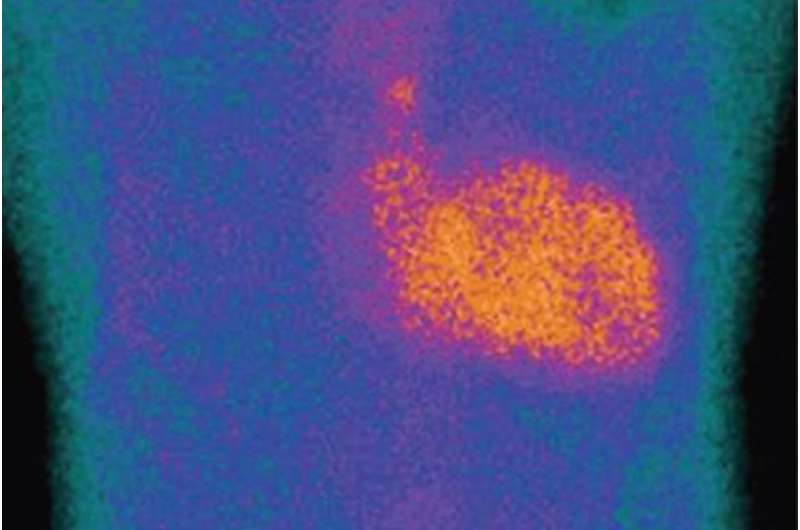Common back ailment could be sign of heart failure

Columbia researchers have found a link between a common back ailment and a type of heart failure, suggesting that screening patients with lumbar spinal stenosis could identify those at risk of the heart disease and prevent premature deaths.
Once considered rare, the heart disease, called transthyretin amyloid cardiomyopathy, is now thought to be a more common but underdiagnosed cause of heart failure. The disease is caused by proteins called transthyretin that can clump together and create amyloid deposits in the heart, the spine, ligaments, and other tissues. In the heart, the deposits stiffen the walls and reduce the amount of blood the heart can pump.
Until recently, no treatment was available for this type of heart failure. But in 2019, after a clinical trial led by Columbia cardiologist Mathew S. Maurer, MD, the FDA approved a drug that prevents transthyretin amyloid deposition. (Amyloid deposits also appear in Alzheimer's disease, but those develop from a different protein and cannot be treated with the drug).
"We have a good treatment that reduces the risk of dying from this condition, and now we clearly need a better way to screen people and find those at risk," says Maurer, professor of medicine at Columbia University Vagelos College of Physicians and Surgeons. "Because the drug does not reduce existing amyloid, it's most effective when taken early in the disease."
Screening back patients
Recent studies suggest that many patients diagnosed with lumbar spinal stenosis develop transthyretin amyloid cardiomyopathy five to 15 years after their stenosis diagnosis. That led Maurer to consider whether screening stenosis patients who undergo surgery could identify those at risk of transthyretin cardiomyopathy or who are already in the early stages.
"Many spinal stenosis patients undergo spinal surgery, and it is easy to take a sample of tissue removed during the procedure and test it for transthyretin amyloid," Maurer says. If amyloid is present in the spine, doctors could use advanced imaging or a heart muscle biopsy to determine if the heart is also affected.
To see if such screening would be worthwhile, Maurer's team at Columbia analyzed spinal tissue from 47 patients (ages 62 to 76) undergoing spinal decompression surgery. The researchers detected amyloid in the spine of 34% of patients; two-thirds had transthyretin amyloid, while the amyloid content of the other third could not be identified. Among those with confirmed transthyretin amyloid (10 patients), one had already developed cardiac amyloidosis and subsequently began treatment with tafamidis. The other nine patients are being closely monitored by their physicians for future heart problems.
"Based on these findings, we would suggest that all patients who undergo surgery for spinal stenosis should be screened for transthyretin amyloid," says Maurer. "I'd certainly recommend screening if a patient has additional orthopedic issues, such as carpal tunnel syndrome, joint deterioration, or bicep tendon injury, each of which can be caused by transthyretin amyloid. Such patients are especially likely to have transthyretin amyloid and be at risk for heart failure in the future."
The research was published in the Journal of the American Geriatrics Society.
More information: Mathew S. Maurer et al, Analysis of lumbar spine stenosis specimens for identification of amyloid, Journal of the American Geriatrics Society (2022). DOI: 10.1111/jgs.17976



















